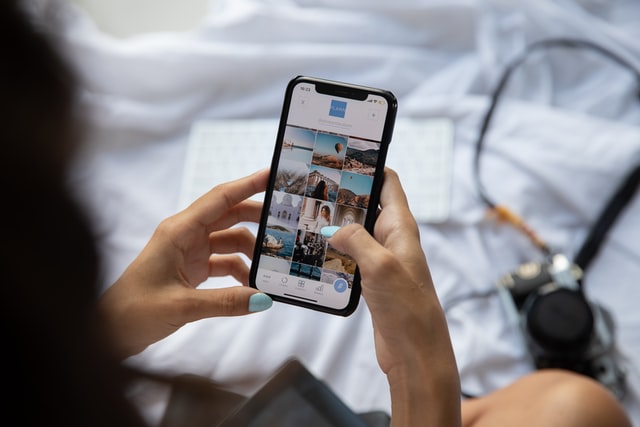8 Reasons Why Your Phone Slows Down

If you’ve been using Android phones for a long time, you’re probably aware that they tend to slow down with time. Do you, on the other hand, know what’s causing this sluggishness? There are a variety of variables that contribute to a slowdown. We’ll go over ten typical reasons why your Android smartphone slows down at some point in this post. You may successfully take suitable efforts to guarantee improved phone performance if you understand these causes.
.
.
1. Operating System Upgrades
Consider that when you originally purchased your smartphone, it may have been operating Android KitKat or iOS 7. In 2013, both iPhone 7 and Android KitKat were released. On the other hand, these updates are designed with a certain set of hardware specifications in mind. If we examine the present year, we can see that hardware standards have changed dramatically. Both iOS and Android now offer a slew of new features.
Consequently, if you’re running a newer model of an OS on an old phone, you can notice a significant delay. But, since these upgrades are tough to ignore, modest versions are OK; nevertheless, if you want to upgrade from Android KitKat to Android 10, be prepared to confront challenges.
2. Updates to the Apps
As previously said, we are always experimenting with new applications and games on our Android and iOS smartphones. Installing so-called “lightweight” programs might turn into “heavier” apps over the period. The major reason for this is app updates. Developers are continuously releasing updates, and each one introduces new features that chew up a great deal of RAM and CPU. When an app becomes bloated, the best thing you can do is replace it with a lighter alternative. Alternatively, you may use Android’s App Manager to remove the app’s cache and data.
3. Background-running Applications
Background applications are another important aspect that we overlook. Open the App drawer and take a glance at all of the applications you’ve downloaded. Users may believe they have downloaded 10-15 applications, but they are frequently surprised to discover that their app count has risen to 40-50. For instance, someone may be having Yoga fitness running in the background as they read a novel and chaton social media.
The issue comes when certain programs continue to function in the background without being activated. Many programs, such as email services and chat apps, are continually active. These applications use CPU and RAM, affecting the efficiency of your phone. As a result, be sure to deactivate or delete any programs that use a lot of RAM or CPU and change to a stationary wallpaper instead of live wallpapers.
4. Phone Misuse
Most people are really careless with their phones. With some dropping them nearly all the time and exposing them to dust and other gases and hardly taking care to clean them. Some go even as far as to drop them in water, rendering those phones obsolete.
If you are such a person, you need to get a zeolite oxygen sieve. It helps to eliminate all the gases leaving oxygen alone. It also has the ability to absorb liquids, which makes it a good saver.
5. Memory Impairment
Smartphones are powered by flash memory, the most popular of which is NAND. However, when NAND memory gets full, it becomes slower. To summarize, NAND Memory requires a certain number of empty blocks to function properly.
Second, after some period of use, NAND memory deteriorated. SLC, MLC, and TLC are the three forms of NAND memory. Each of them is responsible for writing cycle boundaries per memory cell. When the limit is reached, the cells begin to wear out, which impacts performance.
The ideal course of action is to use just 75% of your device’s complete storage space. So, if you have 16GB of internal storage, don’t go above the 10GB limit.
6. Enough Space to Store anything
Because Android’s storage systems slow down as they fill up, accessing to the operating system may be very sluggish if it’s almost full. You may check your storage at any time by navigating to the settings menu. Your operating system will have very little space to perform effectively if your storage is full.
7. Extraneous Software
Bloatware refers to the applications that come pre-installed on Android phones. Smartphone makers often install apps that we don’t require. These bloatware programs do nothing except run in the background. As a result, bloatware applies upgrades and downloads other content from the internet over a period, rapidly filling up the storage. As a result, you should eliminate bloatware from your Android right now.
8. Launchers
It’s right, and you read that correctly. We normally go to the Google Play Store after acquiring a new smartphone and download the finest launchers for Android. Launchers may change the appearance of your Android phone, but they can also cause it to slow down because Android Launcher applications are always running in the background and looking for app upgrades. This device soon consumes our internal storage, hence why your phone slows down at some point.
The Bottom Line
No Matter how powerful your phone is, it needs care just as much as you take your time to do skincare routines to avoid facial breakage. You do the same for your phone and you’ll be grateful. Do not forget to always have a bottle of sanitizer with you since your phone is exposed to many germs and we are still in the middle of a pandemic. Wear a mask and love your phone!
Feature Image Credit:- Photo by Plann on Unsplash
Content Image Reference:- https://unsplash.com/photos/HfWA-Axq6Ek
Content image Credit:- Photo by Denny Müller on Unsplash
You may also like
Image Reference: https://unsplash.com/photos/8IhVh0xU2Hc
Recent Posts
- Indian leaders voice concern after the US strikes VenezuelaThe development triggered strong reactions worldwide, including from political leaders and foreign policy experts in India.
- DGCA prohibits in-flight use of power banks over safety concernsCabin crew training has been given special emphasis under the new guidelines.
- Gomtinagar Railway Station: A key rail hub in LucknowGomtinagar Railway Station (GTNR) is a modern railway station with 6 platforms and serves as one of the important rail hubs of Lucknow. At present, several trains originate from here, including 2 Vande Bharat Express and 2 Amrit Bharat Express services.
- Indian leaders voice concern after the US strikes Venezuela
What’s new at WeRIndia.com
News from 700+ sources
-
Jitendra Singh pushes private sector role in R&D, calls funding rule change significant incentive
-
China, Pakistan vow closer ties in trade, finance, security: Xinhua
-
Quote of the day by Frida Kahlo: ‘Feet, what do I need you for when I have…’
-
Rupee falls 4 paise to 90.24 against U.S. dollar in early trade
-
TMC polls: Rebel candidate challenges Shiv Sena’s nominee to show development record
-
Bus overturns in Rajasthan, 3 dead, 10 injured
-
WeRIndia – A News Aggregator
Visit werindia.com for all types of National | Business | World | Politics | Entertainment | Health related news and much more..










Leave a Reply